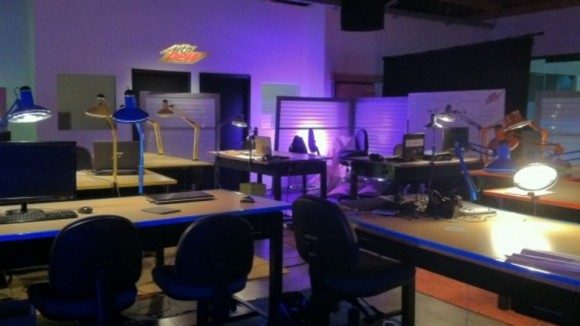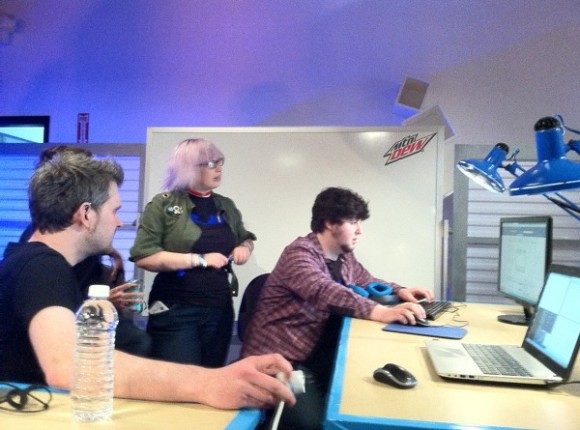A YouTube reality series featuring indie game developers failed to get its first episode off the ground when the invited developers walked out in the middle of the show, fed up with the production crew. Titled Game_Jam, the show was being produced by Polaris and its owner Maker, which was recently bought by Disney. The show also had heavy sponsorship from Mountain Dew and Pepsi, whose contributions brought the show’s budget as high as $400,000. However, what was initially supposed to be a reality show that gave insight into indie developers turned into a mess of product placement, unreasonable contracts and offensive treatment.
The roster of featured developers included Zoe Quinn (Depression Quest), Davey Wreden (The Stanley Parable), Mark Essen (Nidhogg), Adriel Wallick (Rock Band Blitz), Robin Arnott (Deep Sea), and the Arcane Kids (Zineth). The concept of the show revolved around pitting teams of these developers against one another in a game jam, an event where developers try to conceptualize and create a game within a limited space of time, usually ranging between 24 to 48 hours. Last year’s Surgeon Simulator is an example of a game borne from a game jam.
According to IndieStatik, who first reported on the fiasco, the presence of sponsors Mountain Dew and Pepsi made things problematic. They were more interested in advertising their products than being respectful to the developers and their craft, and as a result the developers were forced to jump through all manner of hoops to advertise Pepsi and Mountain Dew products.
Image from IndieStatik
“Davey was forced to take off his nail polish because he couldn’t hold the can with it on,” writes Jared Rosen, a contributor for Polaris, “Zoe had to take off the buttons she usually wears on her jacket, but shouted down a [Production Assistant] who tried to make her cover her tattoos. The Arcane Kids were screamed at for not holding bottles right, while the entire group was lectured on how to properly smile like you’re enjoying the product – a product that everyone was enjoying less and less.”
However, the final straw came during filming, when host Matti Leshem, the CEO of energy brand company Protagonist and consultant for Pepsi, continuously badgered developers such as Adriel Wallick with questions such as “”Do you think you’re at an advantage because you have a pretty girl on your team?”
When Wallick replied that her team had an advantage because she was “a damn fine programmer and game developer,” Leshem reportedly turned to the other team and attempted to further manufacture conflict by asking them, “Do you think the teams with women on them are at a disadvantage?” Rosen writes that when Mark Essen replied that all the teams were strong, “Matti cut him off, pulled back the camera, and coughed, ‘Stop filming. We’re not getting a story here.”
It was at this point when all the developers decided to walk off the set, thus sending a $400,000 production down the drain, something that is sure to ruffle feathers with Disney, who owns both Polaris and Maker.
“What happened is that the Polaris guys had the best of intentions but once the money came, the project got too big for them and that is when an outside production company was brought in, from reality TV,” says Akira Thompson, an indie developer who was brought onto the production as a consultant in this Polygon article, “And they know what they want to get and they wanted that very specific thing that none of us were privy to. They didn’t get it and everyone else got f***ed. I am angry.”
Arnott, Wallick and Quinn have also written about their experiences in these blog posts.
Play games, take surveys and take advantage of special offers to help support mxdwn.
Every dollar helps keep the content you love coming every single day.


